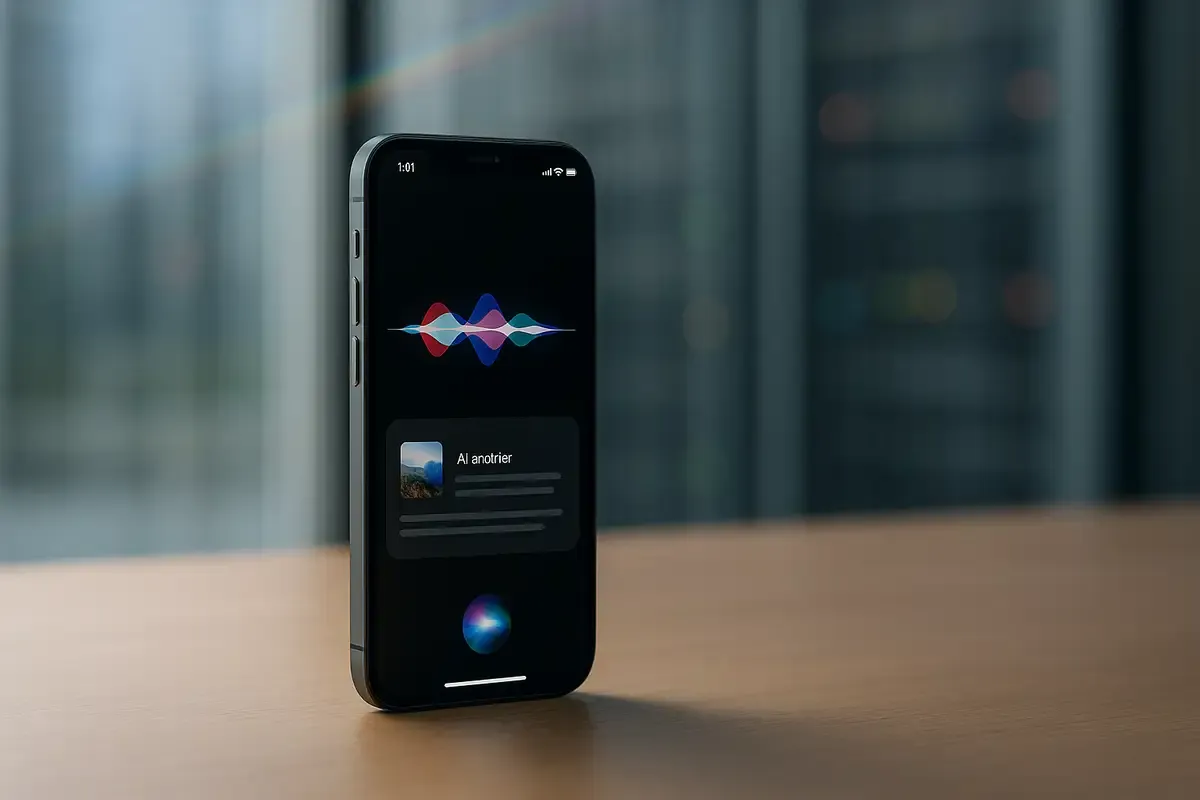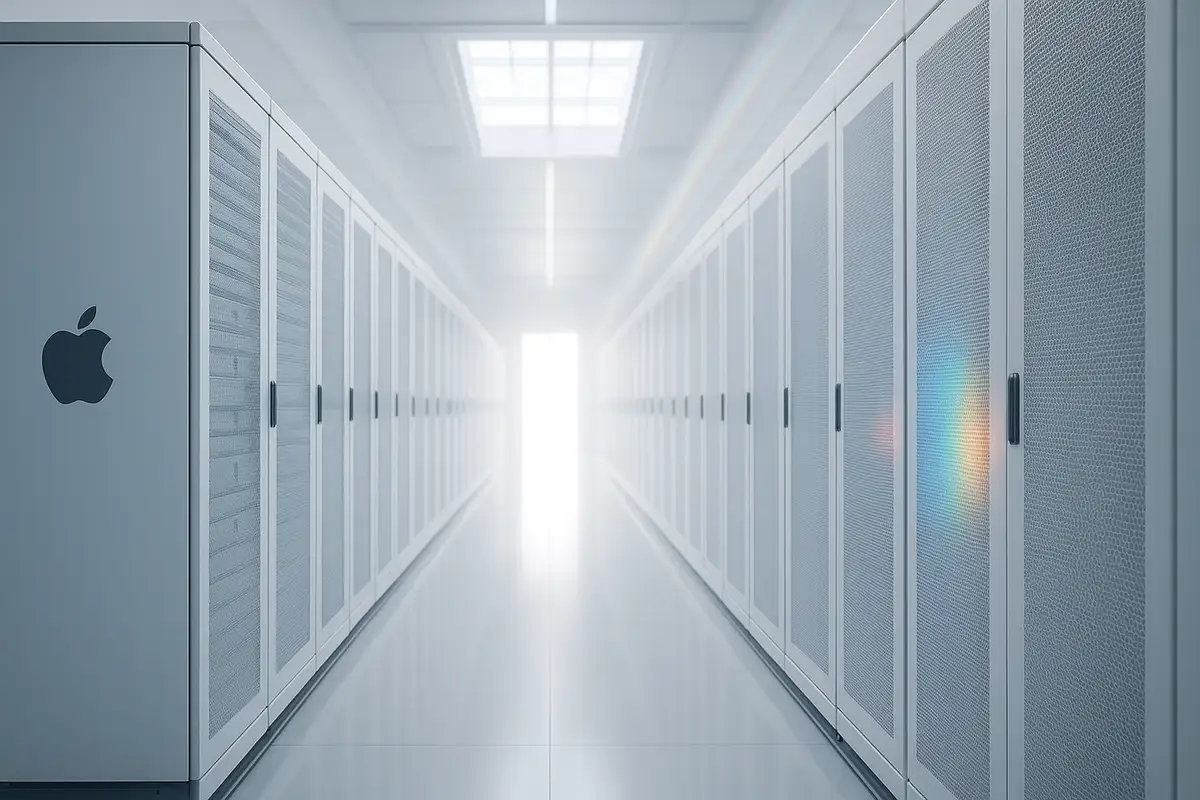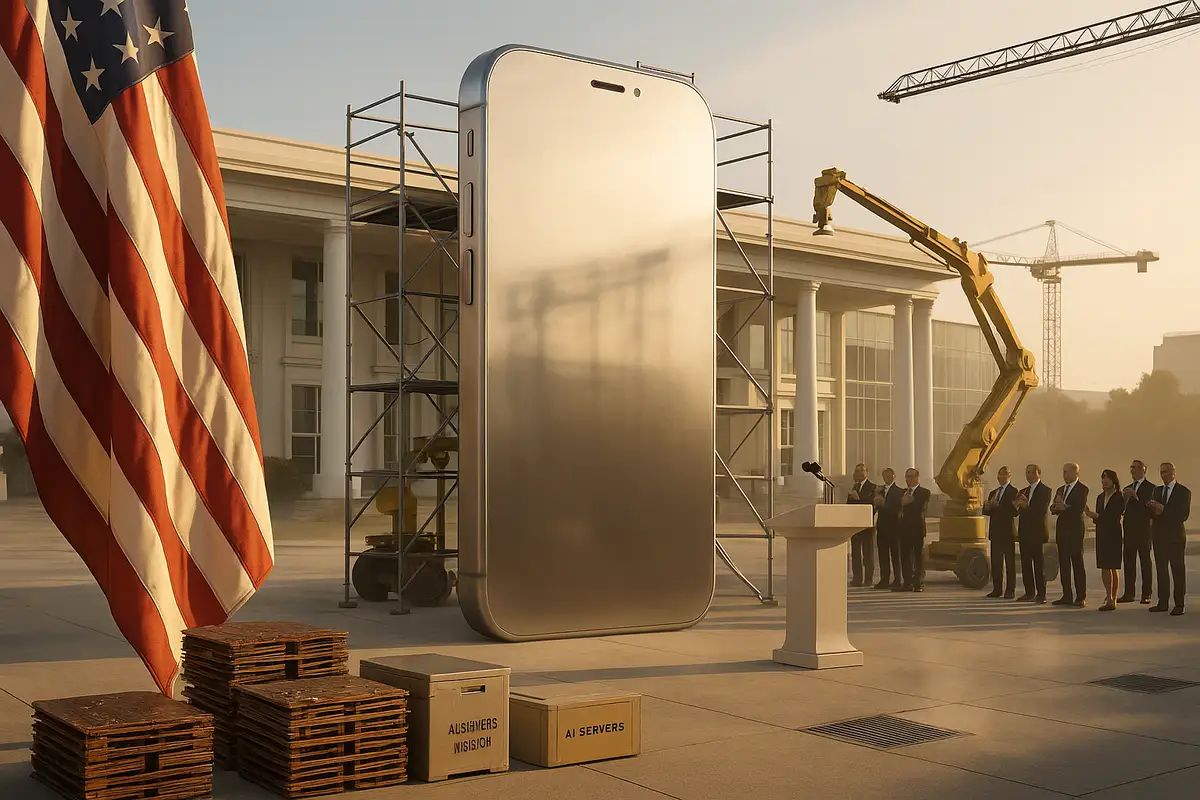Apple Bets It Can Build the Wearable AI Pin That Humane Couldn't
Apple is building an AI wearable pin for 2027, planning 20 million units. Humane sold fewer than 10,000 before HP bought the remains.
Apple's turning to Google to power Siri's AI search overhaul after losing key talent to competitors. The spring 2026 launch targets ChatGPT and Perplexity, but reveals how platform owners extract AI value without building everything in-house.

💡 TL;DR - The 30 Seconds Version
🤝 Apple and Google reached a formal agreement this week to test Google's Gemini AI model for Siri's upcoming search overhaul launching spring 2026.
💰 Anthropic's Claude initially led quality evaluations but demanded over $1.5 billion annually, making Google's friendlier terms decisive for Apple.
🏃♂️ Apple's Foundation Models team lost 13+ researchers including leader Ruoming Pang, who left for a $200+ million Meta package in July.
🎯 "World Knowledge Answers" will transform Siri into an answer engine competing directly with ChatGPT, Perplexity, and Google's AI Overviews.
📱 The system uses three components: a planner, search layer, and summarizer, with Google handling summaries while Apple retains personal data processing.
🌍 Platform owners with billion-user bases can now monetize AI innovation without building everything internally, reshaping competitive dynamics across the industry.
A long-delayed Siri overhaul is finally taking shape, but with a twist: Apple is testing Google’s Gemini to help turn Siri into an “answer engine,” according to Bloomberg’s detailed report on Siri search. Apple says privacy; the architecture says partnership.
Apple aims to ship the feature—internally called “World Knowledge Answers”—as part of iOS 26.4 in the spring of 2026. The plan would push Siri beyond short facts into richer, web-sourced responses that blend text, images, video, and local points of interest. It’s Apple’s most direct play yet against ChatGPT, Perplexity, and Google’s own AI Overviews. Timing matters here.
World Knowledge Answers reframes Siri as a place to ask the web, not just the phone. The interface and response style mirror the AI summary formats that have become familiar, with faster, more digestible answers the stated goal. This is not just a chatbot.
Apple has discussed extending the same system into Safari and Spotlight over time, broadening the surface area where AI answers can intercept queries. If it works, many searches never touch a traditional results page. That’s a power shift.
Under the hood, Siri is being rebuilt around three components: a planner that interprets the request, a search layer for both the web and personal data, and a summarizer that composes the final answer. Each function is separable, which lets Apple mix and match suppliers without ceding the whole stack. Privacy is the sales pitch.
Apple is leaning toward a Google-built Gemini variant for the summarizer, running on Apple’s Private Cloud Compute to keep user information fenced off. Apple’s own Foundation Models are slated to handle on-device and personal-data search, preserving a key differentiator. The planner slot remains fluid: Apple is weighing Gemini, Anthropic’s Claude, and in-house options.
Anthropic initially led Apple’s internal evaluations on quality, but reportedly sought more than $1.5 billion annually to power Siri. Google offered friendlier terms, and Apple moved. Price still decides.
Meanwhile, Apple’s AI bench is thinning. The Foundation Models group lost its creator, Ruoming Pang, to Meta on a package said to exceed $200 million, followed by roughly ten teammates. Additional researchers have departed to OpenAI and Anthropic. The exits drain institutional memory and slow iteration when speed is the currency.
A legal ruling this week preserved Google’s role as the default web search on Apple devices, a deal that has delivered about $20 billion a year to Apple. That cash cushion dulls the urgency to build a full web index from scratch while funding the AI turn. Distribution still rules.
Apple’s billion-plus iPhone users remain the irresistible prize. If Siri’s answer engine becomes the primary gateway for quick facts, route planning, or local lookups, default placement across Apple surfaces will be worth real money. Expect bidding for access, not unlike the historical search-bar auctions—but now for conversational answers, not just links.
The roadmap is ambitious and still unannounced. Bloomberg pegs the Siri overhaul to iOS 26.4 in spring 2026, after a slip from earlier expectations. Apple and Google declined comment, and Apple’s iPhone 17 launch next week isn’t expected to showcase major new AI features. Schedules slip.
Even if the dates hold, answer engines inherit known failure modes: hallucinations, source opacity, and shifting summaries over time. Apple will need clear provenance, strong guardrails, and consistent behavior across identical queries. That’s harder than a demo suggests.
Platform economics are reasserting themselves. Apple doesn’t need to beat OpenAI or Google on pure model quality if it can orchestrate the experience, secure defaults, and insulate personal data with credible privacy boundaries. The Siri plan splits the problem into swappable parts while Apple controls the frame around them. That’s classic Apple.
If the execution lands, marketers and publishers face a slow pivot. Optimization won’t stop at blue links; it will extend to whether— and how—Apple’s summaries surface your content inside a voice reply or a compressed card. The funnel moves, and so do incentives. Prepare accordingly.
Why this matters
Q: How will "World Knowledge Answers" differ from current Siri?
A: Current Siri handles basic facts and redirects complex queries to Google or ChatGPT. The new system will generate comprehensive answers using text, images, video, and local information—similar to ChatGPT or Perplexity. Instead of saying "Here's what I found," Siri will provide direct, AI-generated summaries from multiple sources.
Q: Why isn't this launching until spring 2026?
A: Apple delayed the original Siri upgrade after internal evaluations showed the technology wasn't ready. The spring 2026 target corresponds to iOS 26.4, giving Apple time to integrate Google's Gemini model, test the three-component architecture, and address the talent exodus that saw 13+ researchers leave their Foundation Models team.
Q: What happened to Apple's partnership with OpenAI for Siri?
A: Apple partnered with OpenAI last year for some Siri features, but that integration hasn't reached consumers yet. This Google partnership represents a separate, more comprehensive search engine that would compete directly with ChatGPT. Apple is essentially building multiple AI pathways simultaneously while evaluating which works best.
Q: How does Apple's $20 billion Google search deal relate to this AI partnership?
A: This week's federal court ruling preserved Apple's arrangement making Google the default iPhone search engine, generating roughly $20 billion annually for Apple. This financial cushion reduces pressure to build everything in-house while funding AI investments. Google's favorable AI partnership terms likely reflect this existing relationship.
Q: Why are so many Apple AI researchers leaving the company?
A: The AI talent war has intensified dramatically. Meta offered Ruoming Pang, Apple's Foundation Models leader, over $200 million to join in July. Since then, roughly 10 team members followed Pang to Meta, while three others joined OpenAI and Anthropic last week, creating a knowledge drain that's forcing external partnerships.



Get the 5-minute Silicon Valley AI briefing, every weekday morning — free.